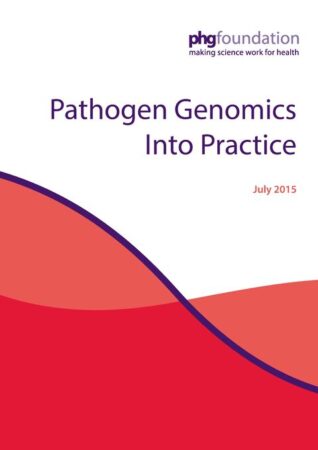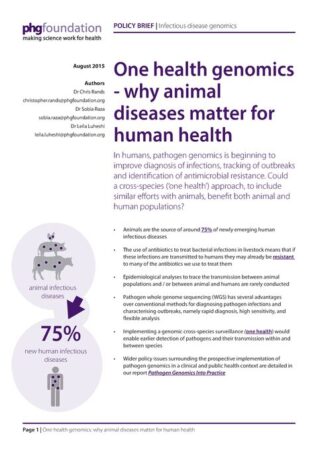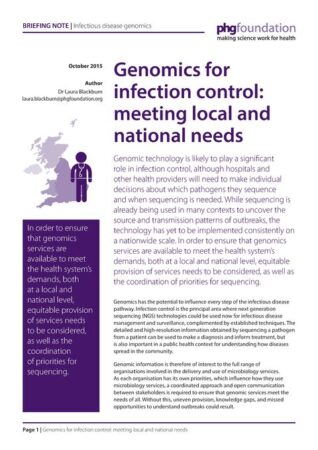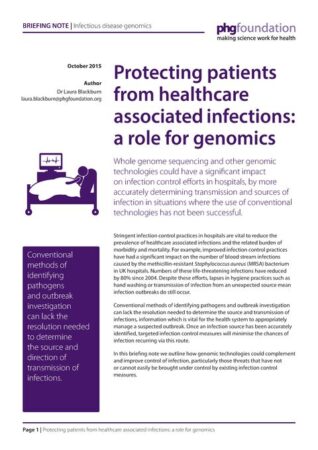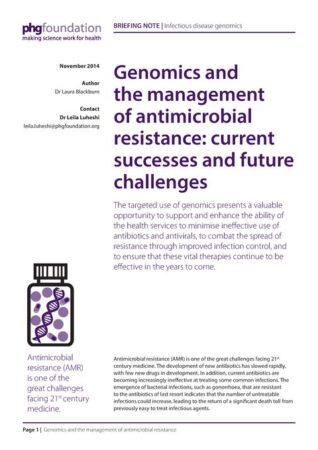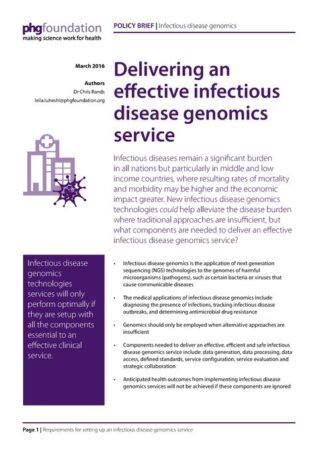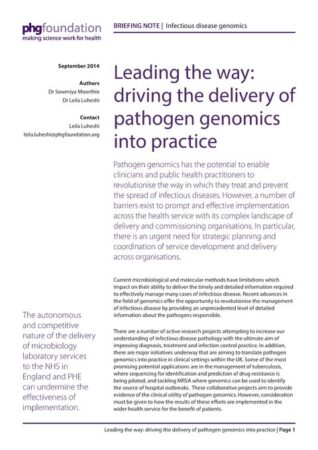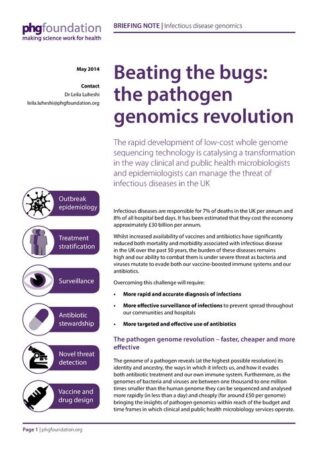Home Publications Reports Pathogen genomics into practice
Pathogen genomics into practice
Genomic technologies have the potential to transform the management of infectious diseases. In Pathogen Genomics Into Practice we set out a roadmap to converting the power of this exciting new technology into services that are high quality, evidence based, and available population-wide on an equitable basis.
Pathogen Genomics Into Practice is a comprehensive report into the current state of play within the exciting field of pathogen genomic sequencing. In the report we examine the key areas where pathogen genomics is having, or could have, a significant impact. And we ask what are the actions needed to be taken to maximise the benefits of this powerful technology.
In the final section we present our roadmap to advancing those actions. The roadmap covers four areas of action:
- Data analysis, knowledge generation and sharing for service development and delivery
- Configuring clinical and public health services
- Standards, validation and accreditation across the clinical pathway
- Strategic coordination and development
A critical feature of the roadmap is the catalyst – a set of real or virtual structures to amplify and integrate current activities in order to accelerate and increase the effectiveness of their impact on patient and population health.
Together, the roadmap and the catalyst integrate the report recommendations into a framework that can be used by all stakeholders involved in the progressive implementation of infectious disease genomics.
This timely report from the PHG Foundation provides an insight into the importance of this work. I welcome it and think it is an excellent contribution to the future debate
Professor Dame Sally Davies Chief Medical Officer for NHS England
By Leila Luheshi, Sobia Raza, Sowmiya Moorthie, Alison Hall, Laura Blackburn, Chris Rands, Gurdeep S Sagoo, Susmita Chowdhury, Mark Kroese and Hilary Burton

